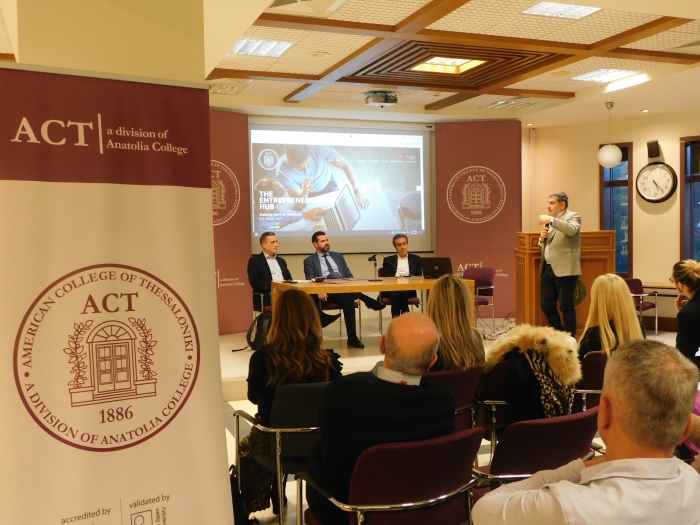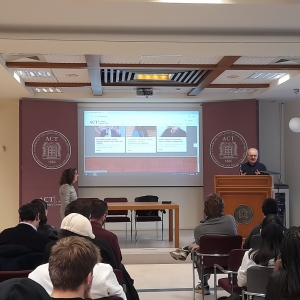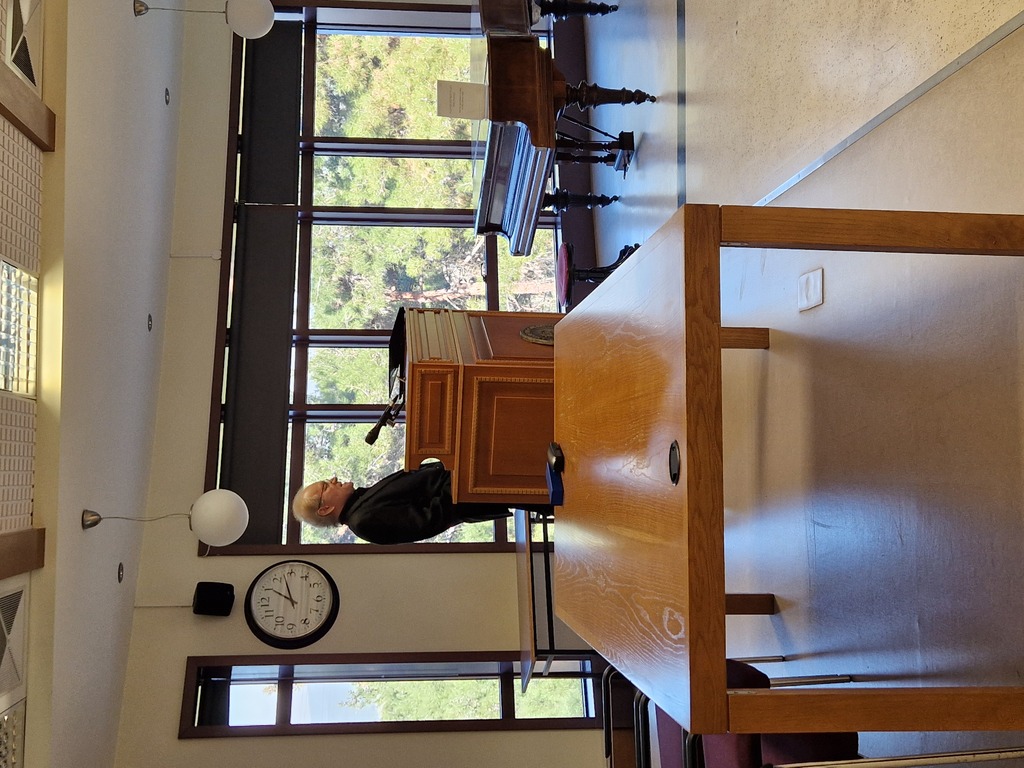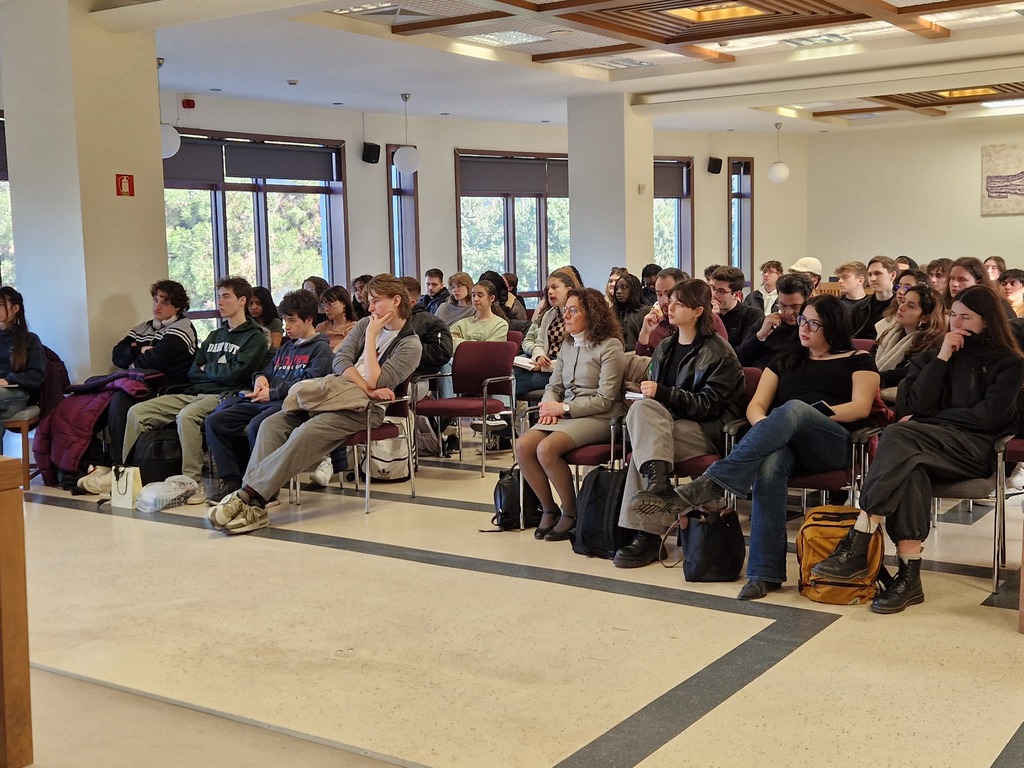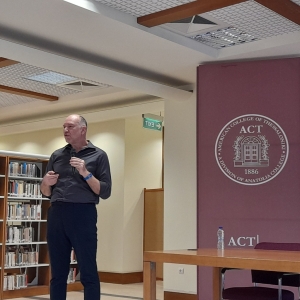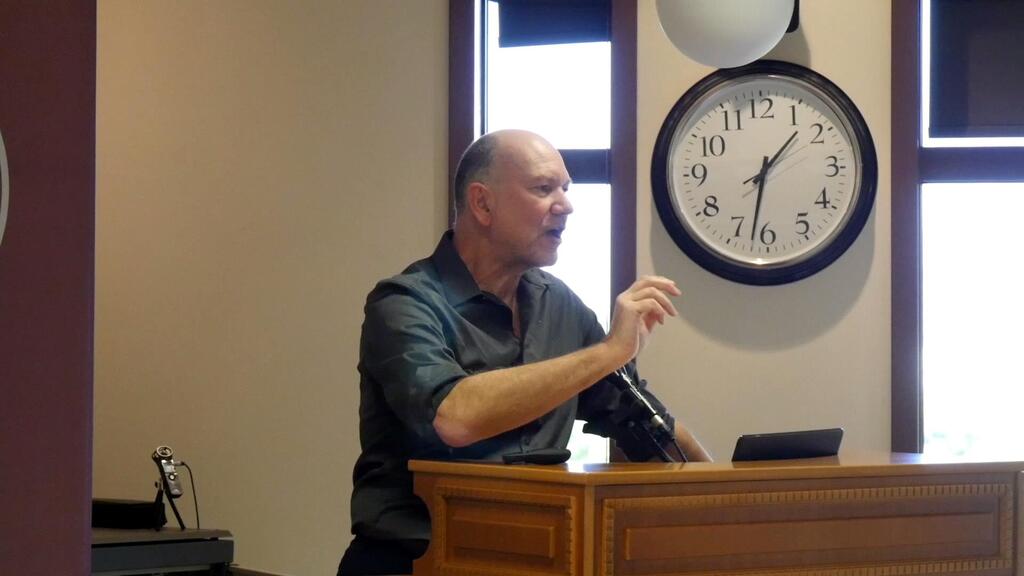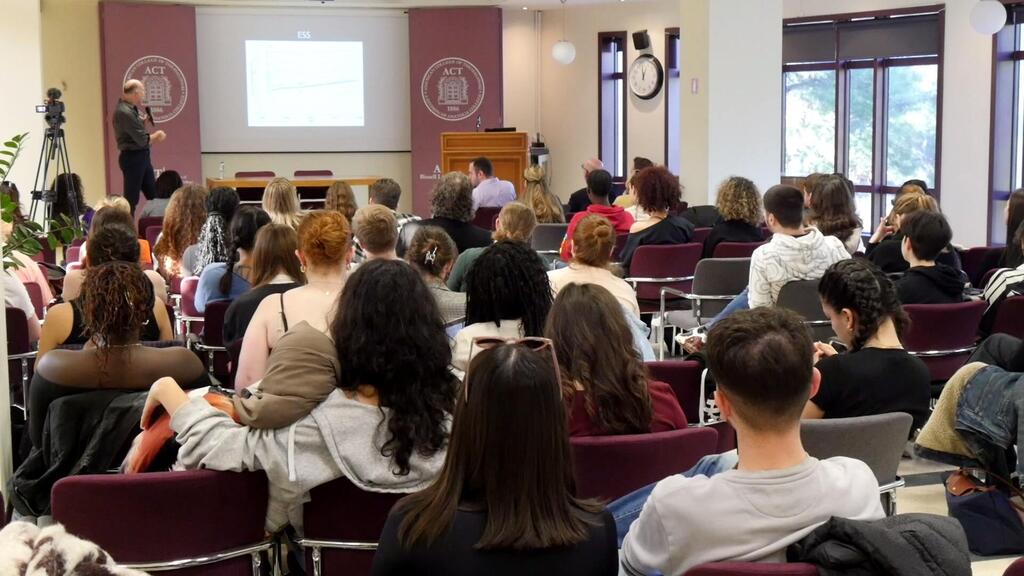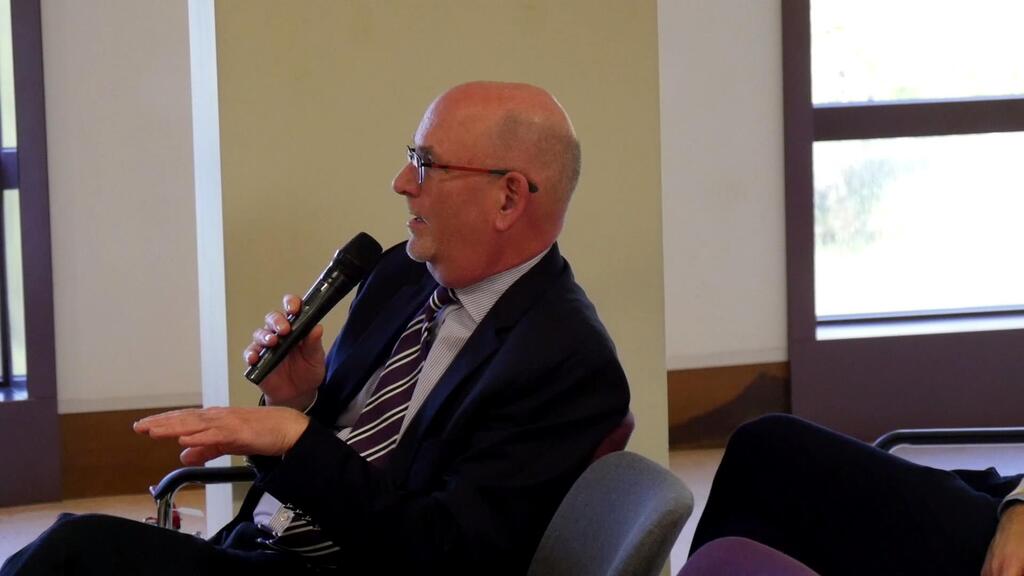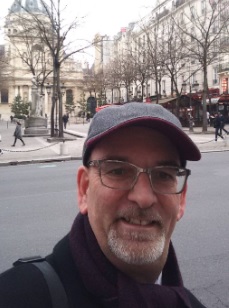This is the first of two updates on the activities of the Dukakis Center at ACT, as we commemorate our extended Silver Jubilee season of public service initiatives.
Driving the news
The Dukakis Center has made news in many ways, both before and after the transformation in 2011 of the endowed chair into an academic center. (The original Dukakis Chair in Public Policy and Service, inaugurated by Michael Dukakis himself in September 1999, was in fact the first of its kind anywhere in Greece.) Our principal goal has remained the same throughout, to inspire young people to take an active interest in public affairs. In so doing, we have actually made history!
We have hosted countless unprecedented events over the years, the impact of which we measured in March 2024 as an integral part of our Silver Jubilee Civil Society Forum. As has become our custom, the focus of our events and the commentary of our speakers have been timely, pertinent, even prescient. Our conference on political reform in Greece in November 2011 happened to coincide with rumors that then-PM George Papandreou might resign; given the prestige of our roster of speakers our participants were quickly besieged by local and international journalists as Thessaloniki became the nerve center for expert commentary on contemporary Greek politics.
You might otherwise remember our path breaking 2020 webinar on US foreign policy in the three seas (Black Sea, Aegean Sea, Eastern Mediterranean) all of which came to dominate headlines at one point or another during the Biden Administration. We are especially proud of having hosted an exclusive webinar with Congressman John Sarbanes in January 2021 on "Peaceful Transfers of Power," which we had planned well before the horrific events of January 6.
A few years earlier, the late Jim McGann of the University of Pennsylvania delivered the keynote lecture on AI and civil society at our think tank summit at Public Syntagma in Athens, “Gatekeepers of Democracy!” This was in 2019, well before the ChatGPT and OpenAI had become household names!
Our friends and followers will have noted the breadth of our guest list, which extends to scholars, practitioners, and public officials from around the world. Our A-list is world class, there are no two ways around it. Meanwhile, one of our more encouraging habits, we think you will concur, has been to welcome younger colleagues to the podium. Witness the 2023 virtual Civil Society Forum, at which a group of distinguished ACT alumni featured alongside seasoned civil society veterans.
The Magic of holistic planning: 2024 in review
There has always been a coherent conceptual dimension to our most ambitious projects and events, an argument, a story, a thesis, an angle.
This was the case most notably with our aborted sixth annual public affairs symposium, “Democracy Begins,” to have taken place in April 2020, at which two dozen scholars and practitioners from throughout Europe and the United States would have convened in what one of our keynote speakers, Jenifer Neils, then-Director of the American School of Classical Studies, called one of the best organized events she had ever been invited to attend.
For two decades and more we have engaged in a public examination of the foundation of political knowledge, part of a conscious effort to remedy what the American journalist David Brooks has dubbed “civic ignorance.” We have frequently inquired what it means to "think politically," as opposed, say, to thinking historically or scientifically. This was the main premise behind our events in the late 2000s on negotiating behavior -- itself inspired in part by a series of publications by the US Institute of Peace.
In a similar vein, we sought in October 2024 to provide some initial context to the state of political analysis, whether it be by teachers in the classroom, journalists in the media, or diplomats in overseas missions. Joining us in person in Thessaloniki or participating online from Prague, Manchester, Washington, DC, and Seattle, senior colleagues from all three domains shared their thoughts on the global wave of democratic elections in 2024, and demonstrated among other things that political analysis as a genre of communication is in good health, even as many other institutional practices have become all but moribund in the face of populist activism and virtual misinformation campaigns.
Being able to produce articulate, coherent political discourse remains one of our principal pedagogical priorities.
Another example of our holistic approach to event planning is our ongoing voter engagement project, which has lasted several electoral cycles both in Greece and in the US, and which has combined hands-on training and civic engagement, collaboration with other third party partners, and applied research on topics of perennial interest, such as voter behavior and voter turnout.
Through large- and small-scale polling exercises we have tested various methodologies, approaches, and hypotheses with regard to the youth vote in Europe and in the US. Supplementing our many voter registration drives for American voters, this research has sought to understand how first-time voters can become frequent and high information voters.
We sought inconclusively to mobilize other American college programs abroad to undertake similar activities prior to the 2024 General Election, in compliance with state law and Federal directives from the US Department of Education. We were nonetheless able to compare the outcomes of non-engagement elsewhere with the results of the ACT experience with its study abroad cohorts in March and September 2024.
Collating our in-house data with that generated by other third party voter engagement efforts (e.g., the US Vote Foundation and votefromabroad.org), we were able to observe two important trends. Whereas voter registration and voter turnout among American citizens residing abroad were down from 2020, dramatically so in many cases, Greece was one of a very few countries in which voter registration actually increased viz-a-viz the historic highs of 2020. Our in-house polling exercises then revealed the relative effectiveness of the design of our voter registration drives, and suggested a strong correlation between attending a voter registration drive and actually voting, either in person in the US or via absentee ballot from abroad.
The next phase in this project will be to share and collate our preliminary data with that collected by partner institutions and to draft a set of best practices for use by third parties in future elections, as early as 2028.
As we look forward to what is next on our planning calendar, the time is indeed ripe to celebrate our twenty five years of public service initiatives. We think you'll agree, some of our accomplishments have been remarkable!
More











